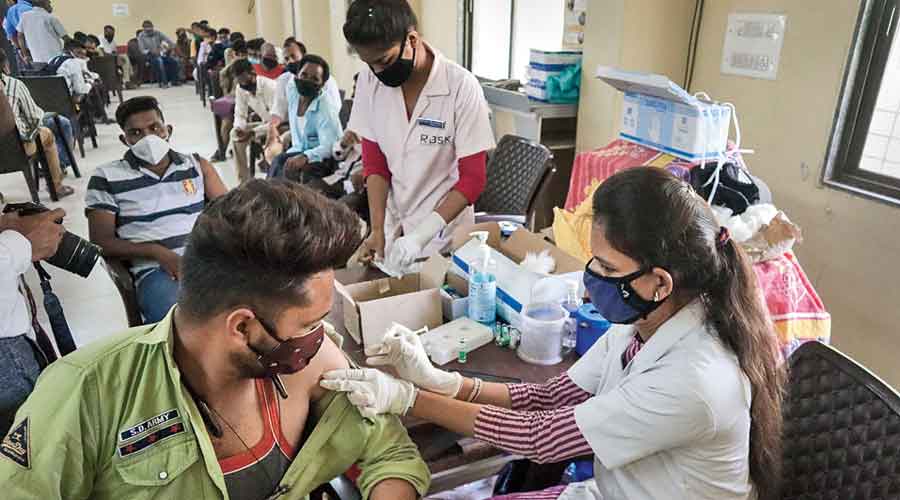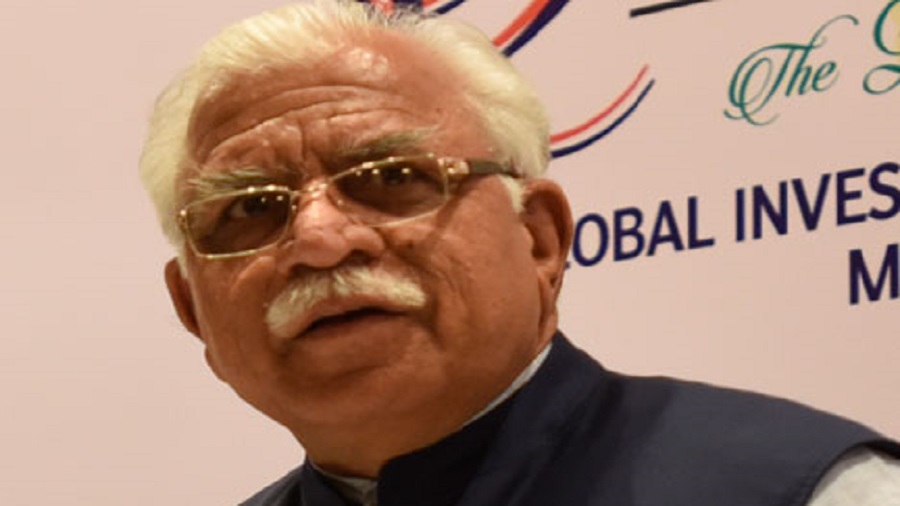The Supreme Court on Monday questioned the government’s Covid vaccine procurement policy that allows the manufacturers to set different prices for the Centre, states and private hospitals and has left the states to compete against one another to import doses.
A three-judge bench said it would like to see the file relating to “dual” pricing, dismissing solicitor-general Tushar Mehta’s plea that policies should be left to the executive.
It said its “arms are strong enough” to pull up the government for any non-compliance of its orders about patients’ right to be treated and air their grievances.
The court’s grilling of the Centre came against the backdrop of several state governments, individuals and civil liberties activists demanding the Union government provide free vaccination to every citizen as a matter of fundamental right.
Meenakshi Arora, appointed amicus curiae (friend of the court) with fellow senior advocate Jaideep Gupta, told the bench that Indians were being forced to pay for vaccines for the first time in seven decades. She said countries across the world were supplying free jabs to their people.
The court asked the Centre to come out with an amended affidavit, filed by an officer above the rank of joint secretary, explaining the measures taken to mitigate the people’s pandemic-induced hardships.
‘Strong’ arm
“We are not framing policy. There’s our order of 30th April that these are the problems. You will be flexible. You just can’t say that you are the Centre and you know what’s right,” Justice D.Y. Chandrachud, who headed the bench, told Mehta.
“Our arms are strong enough; we can come down on the government if there is non-compliance.”
The bench, which included Justices L. Nageswara Rao and S. Ravindra Bhat, has been monitoring suo motu the management of the Covid crisis by the Centre and the states.
The April 30 order had said no patient should be turned away from a hospital for a lack of beds or other facilities like oxygen. It had threatened contempt action against police and others if FIRs were registered against citizens for airing Covid-related grievances on social media.
Competing states
During Monday’s hearing, the bench noted that various states and civic authorities like the Mumbai corporation were floating tenders for vaccine import, amid a shortage of doses, and wondered whether the Centre intended to be a mere “nodal agency” to facilitate imports.
“Does the Government of India contemplate a situation where states are left to compete among themselves by floating tenders?” Justice Chandrachud asked.
‘Dual’ pricing
“We are on the role of the central government…. What is the rationale for dual (pricing) policy? Centre is procuring certain amount and not willing to give it to states at same rate?” the bench asked.
The Centre is buying vaccines at Rs 150 a dose and providing doses free to the states for inoculating those aged 45 or above at government facilities.
But to inoculate younger adults, the states need to buy directly from the vaccine makers — Covishield at Rs 300 and Covaxin at Rs 400 per dose. For private hospitals, the prices are Rs 600 for Covishield and Rs 1,200 for Covaxin.
The bench noted that the Centre had claimed it was being charged a lower price since it bought the vaccines in bulk.
“If this is the rationale then why do the states have to pay a higher price? There needs to be one price for the vaccines across the nation,” it said.
Mehta pleaded that if the court examined the price structures it would only hamper the ongoing negotiations to place more orders for vaccines. He stressed that there was a uniform price for all the states.
“There are conflicting claims by manufacturers. There is no one single price for all states,” Justice Bhat observed.
“Distribution for states will also be now through proportion. Why should there be two prices?”
Justice Bhat said the court would like to see the file relating to the decision on dual pricing to understand its rationale.
Age discrimination
“What is the basis for the Centre to say that for (those aged) 45 and above we will supply and procure vaccines free of charge and for below 45 years, (the) states will have logistical arrangements?” Justice Chandrachud said.
“In the second wave it was the pre-45 which suffered a great deal.... If the purpose is to procure vaccines then why should the Centre confine itself to post-45 and leave pre-45 entirely to states for arranging logistics? How do we look at the marginalised and economically weaker ones?”
The court later adjourned the matter saying it would pass a short written order.



